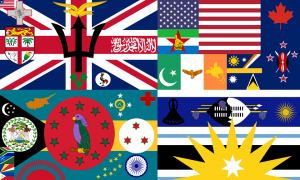Language/English/Grammar/Comparison-of-Adjectives
Adjectives are useful when you want to compare things. Adjectives have three degrees: positive, comparative, superlative.
The positive merely describes a noun, e.g. a tall child.
The comparative compares one person, animal or object with another.
E.g.
• She is taller than her mother.
The superlative compares a person, animal or object with more than one other.
E.g.
• She is the tallest in her class.
How do you use adjectives to show comparison?
Words containing one or two syllables take the suffix -er in the comparative form and -est in the superlative.
Many adjectives containing two syllables and all adjectives containing three or more syllables have the word more or most before the adjective to convey the comparative and superlative respectively.
E.g.
• more intelligent, most comfortable.
Here are some examples:
| Positive | Comparative | Superlative |
|---|---|---|
| fast | faster | fastest |
| small | smaller | smallest |
| careful | more careful | most careful |
| generous | more generous | most generous |
Here are some examples where the comparative and superlative do not have the -er or -est suffix:
| Positive | Comparative | Superlative |
|---|---|---|
| bad | worse | worst |
| good | better | best |
| many | more | most |
| much | more | most |

